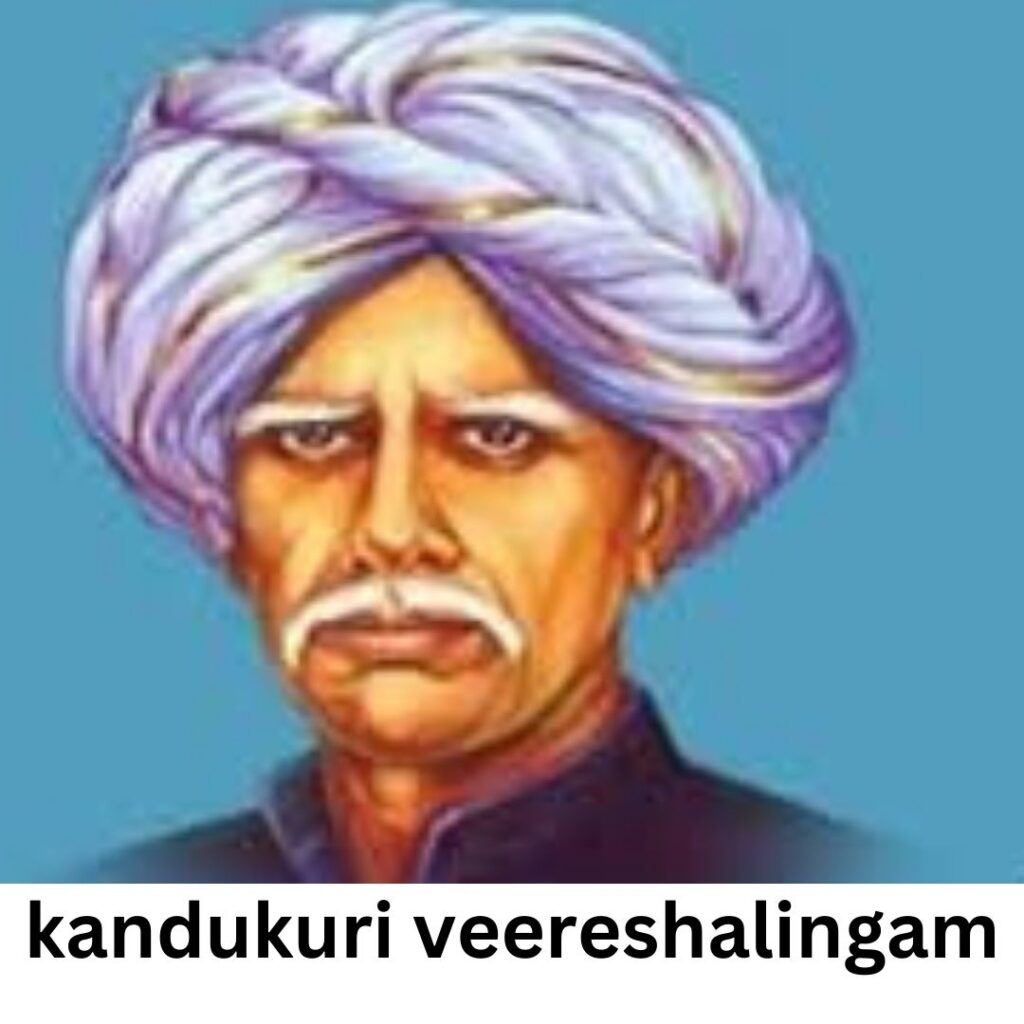kandukuri A Symbol of Andhra’s Renaissance
Kandukuri Veeresalingam, often hailed as the kandukuri “Father of the Renaissance in Andhra Pradesh,” was not only a literary figure but also a pioneering social reformer. His efforts helped people break free from the medieval customs and superstitions that had long constrained them. With a versatile personality, his literary and reformative activities left a lasting impact on society in Andhra. Born on April 16, 1848, in Rajahmundry, Andhra Pradesh, Veeresalingam came from a traditional Brahmin family. He lost his father at the young age of four, after which he was raised by his paternal uncle. His eagerness to learn earned him academic praise early in life, and with the support of his mother and uncle, he completed his matriculation in 1869. Veeresalingam then worked as a schoolteacher in Korangi village, Andhra Pradesh, and later married Rajyalakshmi.

Social Reform Through Literature
Veeresalingam used literature as a tool to fight ignorance and social evils, writing in a simple, accessible style. He was the first author to write novels in Telugu; in 1880, he published his novel Rajasekhara Charitramu. He is also credited with introducing essays and autobiographies to Telugu literature. His autobiography, Sweeya Charitra, was the first in Telugu, and he used his plays to highlight social issues of his time.
In 1880, Veeresalingam wrote Vyavahara Dharmabodhini, the first Telugu play to be staged. That same year, he wrote Brahma Vivaham, a satire on opponents of women’s education, and the humorous Satyaraja Purvadesayatrulu, which criticized male dominance in society. Despite his Brahmin background, he openly criticized the elitist attitudes of the Brahmin community, often depicting Brahmin priests and leaders critically in his plays. Notable works include Viveka Deepika (1880), Prahlada (1885), Satya Harischandra (1886), and Tiryag-Vidwan Mahasabha (1889). Veeresalingam also translated major Sanskrit and English works into Telugu, making them accessible to Telugu readers.
Progressive Social Reformer
Influenced by the ideas and activities of the Brahmo Samaj, Veeresalingam respected thinkers like the district munsif of Rajahmundry, Atmuri Lakshmi Narasimhulu, and philosopher Keshub Chunder Sen, who also criticized the caste system. He strongly supported women’s education, opening a girls’ school in Dhavaleswaram in 1874 and another in Innespeta, Rajahmundry, in 1884. Besides advocating for women’s education, he personally taught his wife, Rajyalakshmi.
In 1876, Veeresalingam started the monthly magazine Vivekavardhini, fearlessly exposing government corruption. He wrote many articles on the importance of women’s education and the evils of child marriage, and criticized superstitions. He started Sahitya Bodhini to advocate for widow remarriage and women’s education.
Widow Remarriage Movement and Critique of Child Marriage
Veeresalingam was deeply affected by social norms that restricted women’s opportunities and was a pioneer of the widow remarriage movement in Andhra Pradesh. In 1879, he gave a speech on widow remarriage that caused a sensation throughout the region, though he faced severe criticism from upper-caste members for his stance. In 1910, he published Athibalya Vivaham, a commentary on child marriage, where he questioned its necessity in the modern world. He wrote, “Why should young girls and boys be forced into marriage at such a young age? The injustices associated with marriage are not limited to the poor; they are widespread. It’s time to rethink and break this cycle.”
Veeresalingam believed in empowering young widows and was a champion for social justice and the rights of women. His contributions laid the foundation for a progressive Andhra society, inspiring generations to come.


